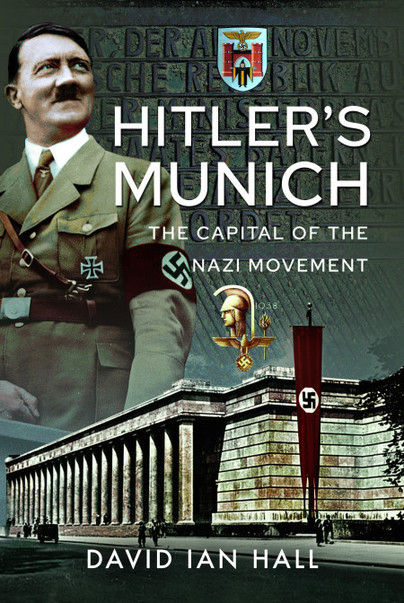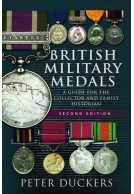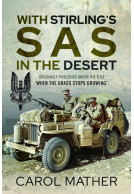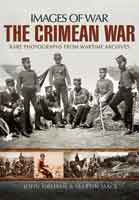Hitler's Munich (Hardback)
The Capital of the Nazi Movement
Imprint: Pen & Sword Military
Pages: 320
Illustrations: 32 black and white illustrations
ISBN: 9781526704924
Published: 17th December 2020
(click here for international delivery rates)
Need a currency converter? Check XE.com for live rates
| Other formats available - Buy the Hardback and get the eBook for £1.99! | Price |
|---|---|
| Hitler's Munich ePub (28.9 MB) Add to Basket | £6.99 |
The immediate aftermath of the Great War and the Versailles Treaty created a perfect storm of economic, social, political and cultural factors which facilitated the rapid rise of Adolf Hitler’s political career and the birth of the National Socialist German Workers’ Party. The breeding ground for this world-changing evolution was the city of Munich and there is no better way to learn about the origins and growth of Hitler’s National Socialism than to study the city. By connecting the sites where Hitler and his accomplices built the movement we gain an understanding of the causes, background, motivation and structures of the Party.
Hitler’s Munich is a cultural and political portrait of the Bavarian capital, a biography of the Fuhrer and a history of National Socialism. All three interacted and the Author is superbly qualified to unravel and explain the linkages and their significance.
David Hall had the clever idea of telling the history of Hitler and the Nazi movement via the story of Munich, the capital of National Socialism. This is a well-researched and detailed account with lots of fresh tales of many of the Führer’s cronies such as Eva Braun. Munich paid a heavy price for its often fanatical worship of Hitler: Fewer than three per cent of all buildings in the city escaped damage and ninety percent of the historical city centre was destroyed.
Paul Moorcraft, author
Anyone with more than a passing interest in German History, the city of Munich, or the story of Hitler and the Third Reich, would do well to get a copy of this book. It is an important book before you visit the city but, equally, it is very help to read when you come home to reflect on keys sights that you can visit, that are integrated into the cities dark past. Whilst this is a history in its own right, of how of both Hitler and the Nazi movement as it grew within the Bavarian capital, it is also a story of the city at the time. Munich, for anyone who has visited, is a beautiful, wonderful city, with much culture and so much continually offered; a city in which you are always drawn back. That said, if you intend to visit the city, then this book will also act as history aid to find out more about this dark chapter in the History of Germany.
Jon Sandison
EDITOR'S CHOICE
The Armourer June 2022
This book takes you through both the people and places of Munich, but also the history of the politics of the time. By placing it all in a time and place context, you can appreciate the conditions that allowed the far right to eventually seize power.
The Bavarian city of Munich has a long and distinguished history as one of Europe's great cultural centres, but in the aftermath of the First World War it became a crucible for extreme right wing thought, as it was here that the Nazi Party was formed and where Adolf Hitler first entered politics, developing his considerable oratorical skills and quickly establishing a reputation as a venomously charismatic speaker. In 1923 it was also the scene of the failed Beer Hall Putsch, and shortly after the Nazis took power they transformed Munich into their spiritual home, with those killed in the attempt being all but deified with monumental buildings to commemorate their sacrifice as though they were legendary heroes of antiquity. David Ian Hall brilliantly describes the origins and rise of Nazism through the prism of Munich, exploring how each was shaped by the other, and how the violent and chaotic beginnings of their ideology was gradually transformed into a sinister cult.
Pegasus Archive
Read the full review here
Rating: 5 out of 5 stars
NetGalley, Ionia Froment
This book was successful in not being just another rehash of boring facts about Hitler. I was beginning to feel like once you've read one Hitler book you have read them all, but thankfully reading this work made it all feel fresh again.
I really liked that this book had a lot to do with culture and time and place rather than just being another book about how the Second World War began. The author made this interesting and easy to read. There was never a time when I felt it was dry and boring and I found myself looking forward to getting back to reading it rather than wondering how much longer I had to endure it.
David Ian Hall has a way of explaining things that makes sense to the average reader without making you feel as if you are being talked down to. I appreciated that. This would be a great book for anyone with an interest in the era and how things developed into the relatively well-known story we have come to understand post WWII.
I recommend this book to everyone who enjoys history and culture.
Another brilliant book about the birth of the Nazis and Nazism. Terrifying to think there are people who still follow these ideals in modern Europe...
Books Monthly
Superb. As much a biography of Hitler and a history of the evolution of the Nazi party as a book about Munich. A compelling well written work, as exciting and informative as any I've read on this darkly fascinating era. All held together by the focus on Munich, the political and spiritual home of Nazism. Highly recommended.
Sebastian Palmer
Read the full review here
Rating: 5 out of 5 stars
NetGalley, Brenda Carleton
"Munich is not a place, but a condition." M. Reinhard. This quote sums it up for me and really struck me as I read this epic book on Hitler and his beloved Munich. The author details events and reasons Munich was chosen as Hitler's headquarters, reasons I never knew. Hall chronologically describes Hitler's upbringing, youth and rise to Nazi leader, including his passion for reading, opera, architecture and art as well as periods of melancholy and depression. Hall explains where Hitler lived, including beautiful Vienna, and his reason for leaving (hatred for Marxism and Jewism which he saw as major threats) which contributed to his rise to Nazism.
Hitler first arrived in Munich in 1913 and indulged in painting. He was disqualified from the army but later joined List Regiment and earned crosses for bravery. He felt the need to stop Jewish Bolshevism and began speaking at political events. He soon joined the Arbeiterpartei (DAP). The NSDAP was formed in 1920. Hitler left the army and spoke at beer halls and was so popular he commanded crowds in the thousands. He eventually took control in 1921 and said that headquarters would always be in Munich, mainly due to its art scene. The author then writes about his imprisonment and mentions his Mein Kampf. Shortly after bans and book burning became commonplace, Jews were ostracized and worse, and in 1939 war began.
This gripping book is extremely informative and chock full of details, much of which I did not know. Many perspectives are always useful and helped me to see (though obviously not understand) Hitler's intense passions, especially his deep hatred of Jews, his charisma, his life. It is impossible to grasp his being moved at the opera whilst promoting pure evil.
If you wish to learn more about Hitler's life and Munich, do read this book. It is heavy on detail and research, not a light read, but fascinating nonetheless. The photographs were interesting for me as a visual person.
Rating: 5 out of 5 stars
NetGalley, Bruno Doelman
Brilliantly researched piece of work, a very detailed description of the rise of Hitler in the Munich decor. As a reader, I noticed the enormous effort the author put into his work. I already had a lot of knowledge about WWII and Hitler, but now the role of Munich in his life and his political scene has become more clear to me.
Overall a must-read!
About David Ian Hall
David Ian Hall, who has a DPhil (Oxon) in modern history from the University of Oxford, is a Fellow of the Royal Historical Society and a Senior Lecturer in the Defence Studies Department, King’s College, London at the Joint Services Command and Staff College. A specialist in nineteenth and twentieth century German history, his published works include First and Second World War topics; Strategy for Victory: The Development of British tactical Air Power, 1919-1943 (Praeger, 2008) was selected for the Chief of the Air Staff’s Reading List. He leads cultural-political staff rides for the UK armed forces and NATO. He lives in Oxfordshire.















